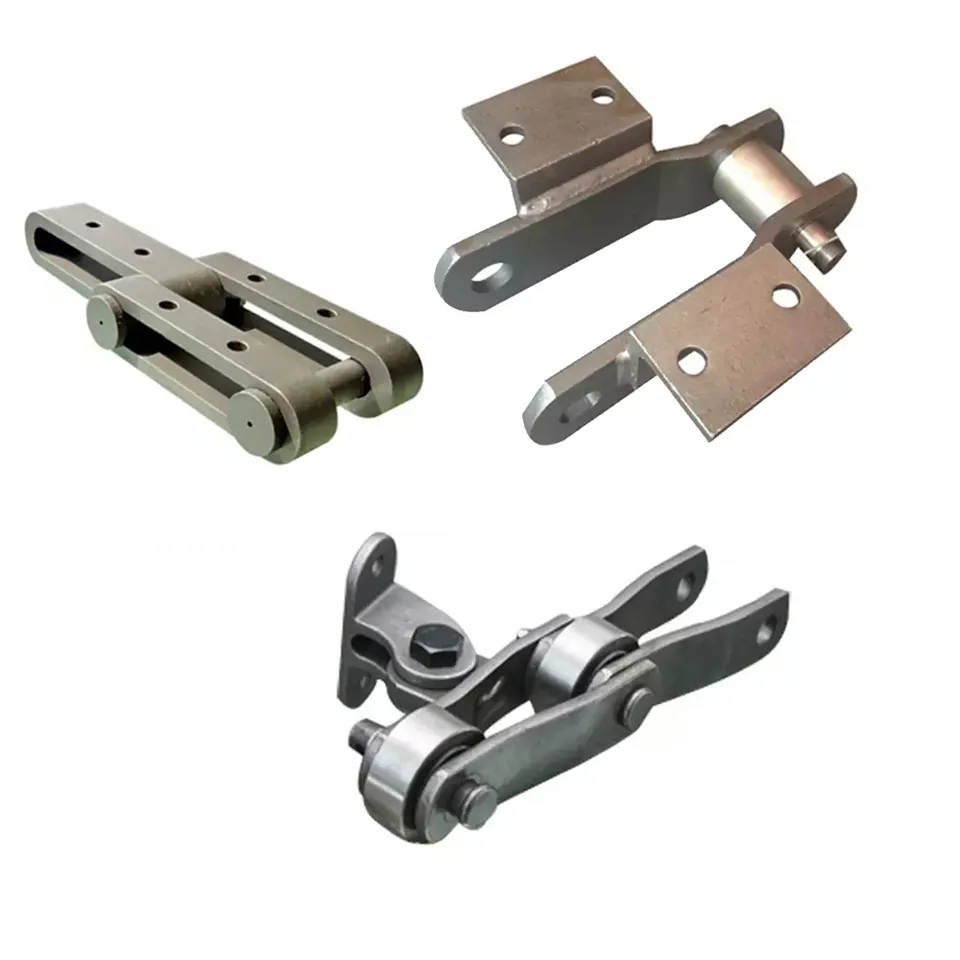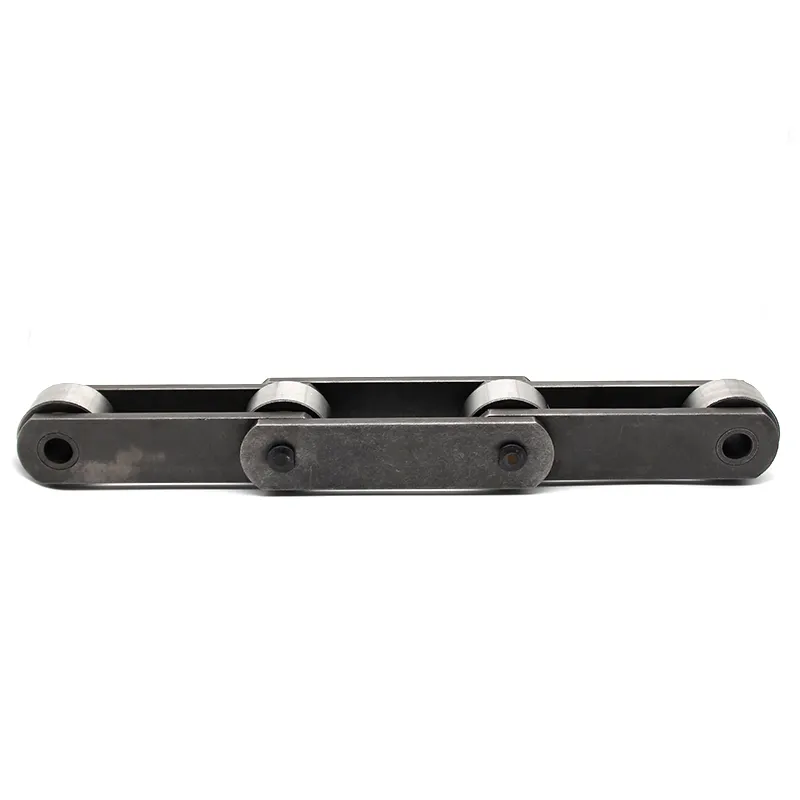Product Description
OEM or ODM service available
Special sizes can be produced according to customers’ requirements.
Mainly used in Industry and Lashing.
Customized requirements are welcome!
| Commodity name | Tow Chain |
| Brand name | XIHU (WEST LAKE) DIS. |
| Usage | Lifting and connecting, Wire rope fittings, Chain fittings, Marine hardware fittings |
| Main standard | US, EN, DIN |
| Material | Carbon steel, Alloy steel, Stainless steel 304 or 316 |
| Finish | Hot Dipped Galvanized, Electro Galvanized, Color Painted, High polished, Mirror Polished |
| Technology | Drop forged |
| Standard | ASTM80, NACM90, NACM96 |
| Breaking Load | 1600-63200lbs |
| Grade | Grade 30, 43, 70 |
| Material | Alloy Steel 20Mn2 |
| Size | Different size available (1/8″-1″, 1/4” -3/4” but 5/16″ and 3/8″ are the most selling size , Customized) |
| M.O.Q | 100PCS per Size |
| MBS | 6 times WLL or 4 times WLL |
| Packing | Gunny bag or carton and pallet / by customer requirements. |
| Delivery time | 15-30days after order confirmation |
| Payment term | T/T, L/C, Western Union |
| Business type | Manufacturer, trading |
| Certifications | ISO9001,CE,BV,SGS |
| Notes | Special specifications and marks can be made according to customers requirements. |
|
Question |
Answer |
|
1Can you offer OEM &ODM? |
Our company accept OEM&ODM, if your need it, please inform us of your specific requirements. |
|
2What is the MOQ of your rgging product |
The MOQ is different due to different kinds of rigging accessory, mix orders is ok and 100pieces can also be accept |
|
3 I don’t trust your products quality, can you provide samples? |
Yes, we can offer you samples, but you need to pay ,the sample fee will refund to you after your first order. |
|
Are you a factory or a trade company? |
We are factory , welcome to visit our factory at any time. |
|
How to start Chain business?smart home system |
1) HangZhou Xihu (West Lake) Dis. Rigging Co., LTD provide you professional suggestion and solution of Chain CHINAMFG your needs. TAIYITO Wireless Zigbee Home Automation Devices |
| Usage: | Tow Chain |
|---|---|
| Material: | Alloy |
| Surface Treatment: | Electroplating |
| Feature: | Heat Resistant |
| Chain Size: | Customized |
| Structure: | Welded Chain |
| Customization: |
Available
| Customized Request |
|---|
How do mill chains handle misalignment between sprockets in conveyor systems?
Mill chains are designed to handle moderate misalignment between sprockets in conveyor systems. Here’s how they manage misalignment effectively:
Flexible Construction:
Mill chains are built with a flexible construction that allows them to accommodate slight misalignment between sprockets. The chain links and pins have some degree of movement, which helps in absorbing minor misalignment without causing excessive wear or stress on the chain components.
Side Bow Effect:
Mill chains exhibit a phenomenon known as the “side bow” effect, which allows them to adapt to misalignment. The side bow effect refers to the lateral movement of the chain as it wraps around the sprocket. This lateral movement helps the chain adjust to the sprocket’s position, even if it is slightly misaligned.
Sprocket Tooth Design:
The shape of the sprocket teeth can also influence how well the chain handles misalignment. Sprockets with properly designed teeth, such as a standard roller chain sprocket, can aid in reducing the impact of misalignment on the chain’s performance.
Regular Maintenance:
To ensure that mill chains continue to handle misalignment effectively, regular maintenance is essential. Periodic inspections and lubrication can help identify and rectify any misalignment issues, preventing excessive wear and potential chain failure.
Limitations:
While mill chains can tolerate some misalignment, excessive misalignment should be avoided. Prolonged and severe misalignment can lead to accelerated wear and reduce the chain’s overall lifespan. In cases where misalignment is significant, it is crucial to address the root cause of the misalignment and make the necessary adjustments to prevent further chain damage.
Overall, mill chains’ ability to handle misalignment in conveyor systems makes them suitable for applications where minor sprocket misalignment can occur due to system variations or environmental factors.
Can mill chains be used in pharmaceutical manufacturing and processing equipment?
Yes, mill chains can be used in pharmaceutical manufacturing and processing equipment for specific applications. However, it is essential to consider several factors and choose the appropriate type of mill chain to meet the unique requirements of the pharmaceutical industry.
Here are some points to consider:
1. Material Compatibility: The materials used in the construction of the mill chain must be compatible with pharmaceutical products and meet industry regulations. Stainless steel or food-grade materials are often preferred to ensure product safety and hygiene.
2. Cleanability: Mill chains used in pharmaceutical applications should be designed for easy cleaning and sanitization. Smooth surfaces and fewer crevices can minimize the risk of product contamination.
3. FDA Compliance: In pharmaceutical manufacturing, adherence to regulations set by the U.S. Food and Drug Administration (FDA) or other relevant regulatory bodies is critical. The chosen mill chain should comply with these standards.
4. Product Handling: Consider the specific requirements of the pharmaceutical products being handled. The mill chain should be capable of transporting, elevating, or conveying the products efficiently and without risk of contamination.
5. Corrosion Resistance: Depending on the pharmaceutical processes involved, the equipment may be exposed to chemicals or cleaning agents. A corrosion-resistant mill chain can withstand these harsh conditions and extend its service life.
6. Surface Finish: A smooth surface finish on the mill chain can prevent the accumulation of debris and contaminants, making cleaning more effective.
7. Lubrication: Some pharmaceutical processes require special lubrication considerations to avoid any potential product contamination. Food-grade or pharmaceutical-grade lubricants may be necessary.
8. Sanitary Design: Choosing a mill chain with a sanitary design, including self-draining features and easy disassembly, can facilitate thorough cleaning and minimize the risk of bacterial growth.
9. Validation and Documentation: The mill chain supplier should be able to provide validation documents and certification to demonstrate compliance with industry standards and regulations.
By carefully considering these factors and working with reputable suppliers, pharmaceutical manufacturers can use mill chains safely and effectively in their processing equipment while maintaining the required quality and hygiene standards.
What is a mill chain and how is it used in industrial applications?
Mill chains, also known as conveyor chains or industrial chains, are a type of heavy-duty chain used in various industrial applications. They are designed to convey or move materials in a controlled and efficient manner within industrial processes.
These chains typically consist of a series of interconnected links that form a continuous chain loop. Each link is designed to engage with sprockets, which provide the driving force to move the chain and the attached materials.
Mill chains are commonly used in industries such as:
- Steel Production: In steel mills, mill chains are used to transport raw materials, such as iron ore, coal, and limestone, to various processing stations.
- Lumber and Paper Industries: Mill chains are utilized to convey logs, wood chips, and paper rolls in sawmills and paper mills.
- Cement Plants: These chains are used to transport materials like limestone, gypsum, and clinker in cement manufacturing.
- Grain Handling: In grain elevators and agricultural facilities, mill chains are used to move bulk grains and seeds.
- Mining: Mill chains are used in mining operations to transport minerals and ores.
- Automotive Manufacturing: These chains are used in assembly line processes for automotive production.
- Bottling and Packaging: Mill chains are used to move products through bottling and packaging lines.
One of the essential features of mill chains is their robust construction, which allows them to handle heavy loads and endure harsh environments. They are often made from durable materials, such as carbon steel or stainless steel, to resist wear, corrosion, and other forms of damage.
Mill chains play a vital role in streamlining industrial processes, increasing productivity, and ensuring the efficient movement of materials throughout various stages of production. Proper maintenance and lubrication are necessary to extend the life and performance of mill chains in demanding industrial applications.
editor by CX 2023-10-26




